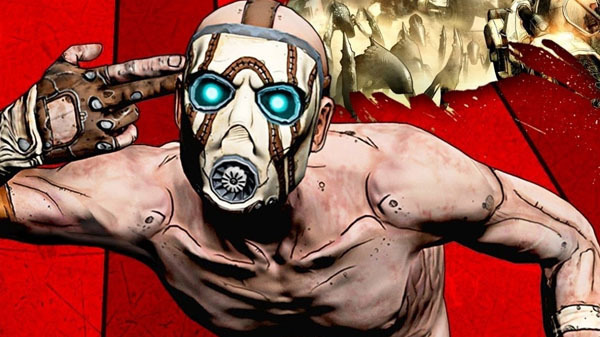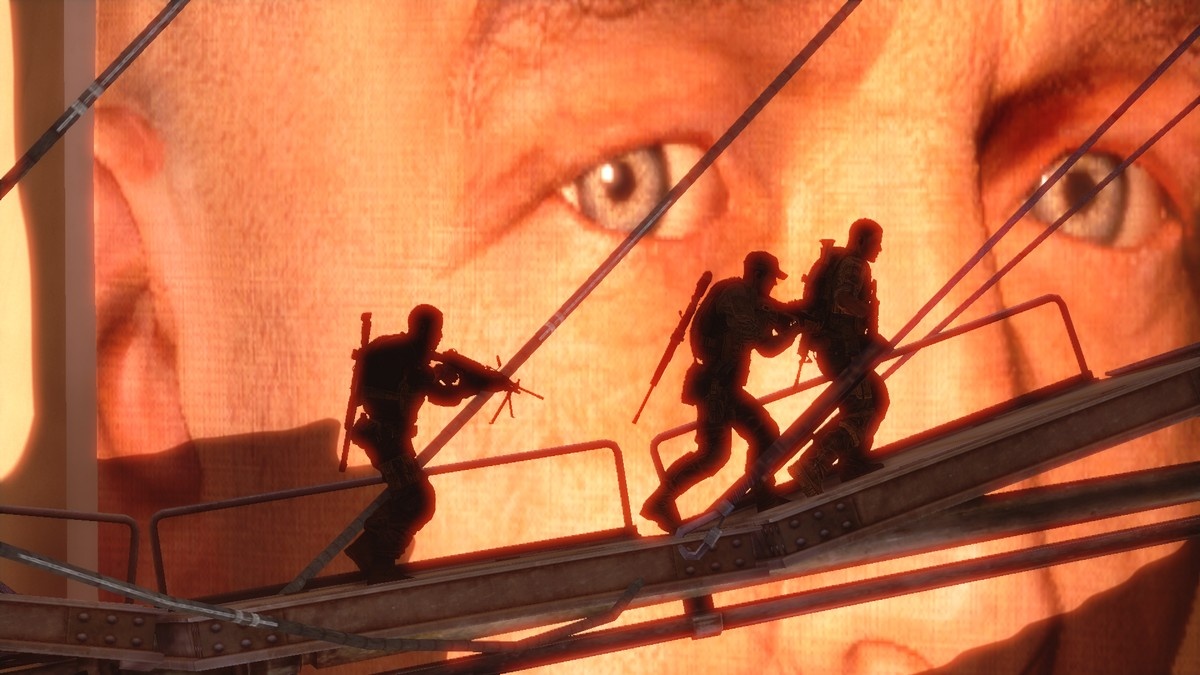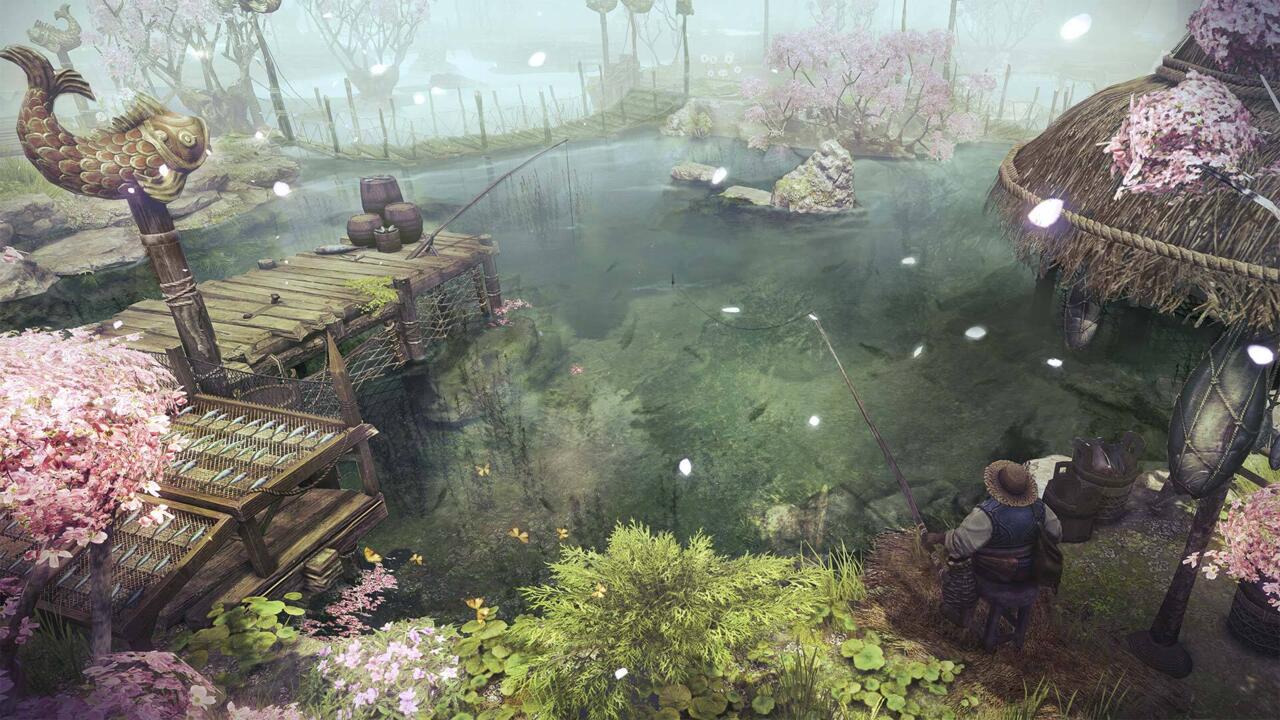Pressure was mounting and 2K had a host of possibilities to choose from.
So Hartmann came up with a plan, and that was to let his pug Sissi decide the cover.
“We’re like, ‘What?’

We’ve been working so hard, our blood pressure is so high.
We’re like, ‘Okay, funny joke, haha, now let’s get down to business.’
“And so we all just looked at each other, and we’re like, ‘Holy cow!

We’ve all gone insane.'”
Sissi walked around the room and eventually plopped down on a cover she liked.
This would be the cover for Borderlands: The Pre-Sequel seen by millions of people.

The marketing team was shocked at this out-there approach for such an important decision.
“And we got to the point, and [Hartmann] goes, ‘That’s it!”
Who is Christoph Hartmann?

You may not know the name, but you have felt his influence.
Despite having so much experience in the gaming industry, there is surprisingly little sign of him online.
He asked if I was preparing to psychoanalyze him as a therapist might.
He is, as I found out, a jokester.
He also rarely believes anything he does is good enough.
He is climbing a mountain that he may never summit, and he seems okay with that.
“Do I Really Want To Look Into Farmers’ Mouths For The Next 40 Years?”
His story begins in small-town Germany.
Hartmann was born in Rosenheim, a sleepy town about halfway between Munich and Salzburg.
“Very Sound of Music country,” Hartmann says.
Thanks in part to having an American basketball coach and other factors, Hartmann became enthralled with American culture.
His parents were successful dentists, and townspeople wondered if he would follow in their footsteps.
“I was like, ‘Why?’
Who says I have to be a dentist?
Do I really want to look into farmers’ mouths for the next 40 years?”
Hartmann’s road to gaming started with music.
“Who says I have to be a dentist?
Do I really want to look into farmers' mouths for the next 40 years?”
He landed the gig and accumulated a fair share of experience and stories.
They struck up a relationship, with the man dropping by Hartmann’s desk regularly for a chat.
It was seen like a toy by many people [at the time],” he said.
This was a turning point in Hartmann’s career.
There is something to believe in.
A small upstart, BMG Interactive launched the first GTA in 1997.
“I felt like the grim reaper.
Anytime I showed up, people started sweating.”
“More than we ever expected.”
Rockstar Games was formed as part of the Take-Two buyout.
“I felt like the grim reaper.
Anytime I showed up, people started sweating,” he said.
Making these distribution deals with third-party content was a way to get there.
“We were an off-shoot, side-business for Take-Two, who needed to diversify away from GTA.
They were trying to build a business and add more to that.
It was not a great space.
We were all crammed in there.”
It was also one of Hartmann’s first major struggles in heading up 2K.
“The original pitch was an RPG,” he said.
“We thought, do we call it a genre-mix?
[Levine] and I argued a lot.
He’s a very opinionated person.
I was young and under a lot of pressure to get something done.”
And then we’ll have some debates.
She credited Hartmann with having a long view of the business and prioritizing quality above all else.
The cover art designs submitted to Hartmann for Borderlands left him unimpressed.
The team had less than a week to submit a cover.
A eureka moment followed.
“I wasn’t very happy with the very first Borderlands image.
But I said, let’s do that.
Everyone said, ‘Oh my god, what will people think?!’
And I said, that’s perfect, that’s what people will think.
I think it was a very strong image.
Sometimes you don’t go for the logical one.
Sometimes with entertainment, you have to go for the iconic one.”
Another bold bet with the original Borderlands was its art style.
Less than a year before release, Borderlandslooked like any other shootermade with the Unreal engine, Hartmann said.
I talked with Strauss Zelnick, who said, ‘Are you sure?’
I said, ‘Yeah, we gotta go for it.’
But for all of 2K’s successes, Hartmann said he didn’t get everything right.
And then you build a company that is much bigger than you expected you ever would build.
You know what kicks in?
‘I could screw it all up.’
And then you start making bad decisions," he said.
Hartmann and 2K acquired the game that would become Evolve from THQ’s bankruptcy auction.
Similar games, such as Dead by Daylight, have since exploded on the market as well.
Titanfall tried to sell only PvP and it kind of didn’t work.
It kind of did the opposite.
So we did a cheap PvE version, which we should have never done," Hartmann said.
“The right thing would have been for the game to go free-to-play from the beginning.
It would have been a bold decision.
It would have been the right bold decision.”
As for Battleborn, Hartmann said Gearbox announced the game too early.
“We were stupid enough to announce [Battleborn too early].
We announced it at E3, far too early, like three years out.
We did something [sales and impact-wise], but clearly not what they did with Overwatch.”
Another struggle for 2K was Spec Ops: The Line.
“I gave in to the company.
It was an IP that Take-Two owned and they didn’t want to write it off.
But that’s not how it worked out.
“The winner takes it all in games and that’s it.
Leaving 2K for Amazon
In 2017, 2K had settled into a groove.
Meanwhile, AAA development was becoming bigger, tougher, more expensive, and less interesting each year.
That can’t be it?
That’s my life?
I’m done.”
So Hartmann left 2K, the company he co-founded more than a decade prior.
Hartmann was out of games entirely.
Then he got an unlikely call–from Amazon.
At first, he thought the idea was ridiculous.
“Doing games at Amazon, really?'
The thrill you have with putting a game out… it’s a little bit addictive.
Amazon Games boss Mike Frazzini left the company in 2022 in the wake of the report.
“All games will be live-service games.
There is no better way.”
“I wanted to do a different pop in of game.
“I wanted to do live-service games because I think that’s the future.
All games will be live-service games.
There is no better way.”
So it’s becoming… fewer and fewer games.
Which leaves less and less room for new games.
Crucible was a free-to-play multiplayer shooter that was Amazon’s first big play in games beyond its mobile/social offerings.
Even though the game went nowhere and quickly shut down, Hartmann said it was a valuable learning experience.
“Sometimes you just have to start shipping,” he said.
“If you want to play in the Champions League, you gotta play some games.
Look at [Paris Saint-Germain]; they buy the best players and still don’t win.
Did I think Crucible had a big chance?
You’re kidding yourself.
What are your chances?”
“But it was also very much about, ‘What is our learning?
There was nothing punitive or anything like that.
It helped us understand that we can take some risks; we can try things.
“It’s pretty good given that everybody thought we would never ship a game,” Hartmann said.
“Other people tried it.
Google threw in the towel after like, what, a year?
Not very long,” he said.
“[Google] had lots of big announcements, lots of plans…
I am more in the world of underpromise and overdeliver.
I venture to keep it quiet and let the results speak for themselves.”
“That’s the beauty of Amazon.
[Lost Ark and New World] did really well at the beginning, the numbers dropped.
Other traditional publishers could say, ‘Uhh, I’m done,'” Hartmann said.
Elder Scrolls [Online] had the same thing.
Lost Ark in Korea lost 90% of the installed base.
But then they came back.”
“Seeing someone pick the hard one?
That was like, ‘Wow.’
This one has something that really stands out about it, and he spotted that right away.”
“Ideally, [we become] the Disney of the future.
“In general, I believe games are going to be the new Marvel…
There are no plans.
Is there going to be a New World TV show one day?
“I put more pressure on myself than anyone else can put on me.
When we have a success, and people are like, ‘Oh, let’s celebrate.’
I can’t,” he said.
Because there is always something.
The worst thing for me is having a successful title because I put so much pressure on myself.
Now we’ve had two okay hits and now I’m just hungrier.
I want to be the biggest live-service games publisher in the world.”
Hartmann still takes time for himself, and he goes on vacations and spends time with his family.
“I will always put family first over work,” he said.
“I do not always put myself higher than work.
It’s always family first, work second, myself third.
It’s really my own ghost haunting me to do the next thing.
I wish I could shut it off sometimes.
I don’t see myself as a complete failure.
That’s kind of more my approach to life.
While I’ve had my share of bad experiences, somehow I always turn out lucky.”
Got a news tip or want to contact us directly?